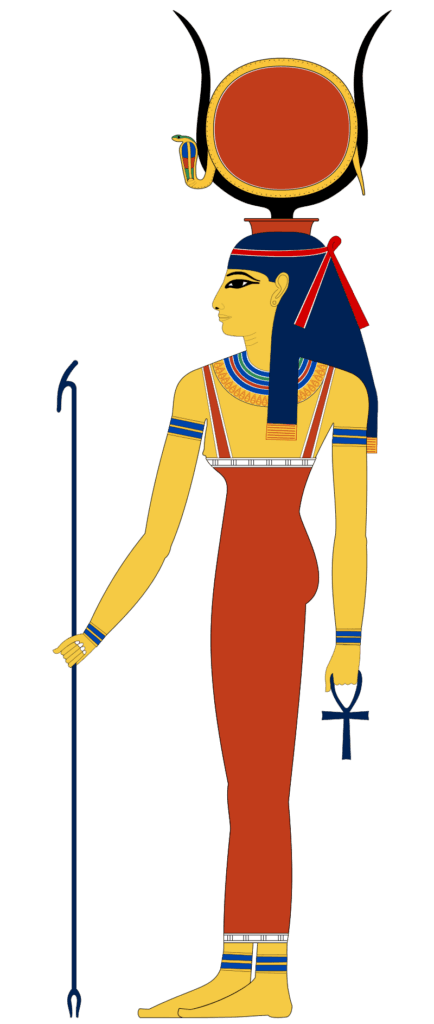
Hathor, one of the most revered deities in ancient Egyptian mythology, symbolizes love, joy, music, and motherhood. She played a crucial role in both the spiritual and daily lives of the Egyptians. As a goddess associated with the sky, she also held a connection to the sun god Ra.
Origins and Symbolism
Hathor’s name means “House of Horus,” linking her to Horus, the falcon-headed god. Often depicted as a cow or a woman with cow ears, she represented nourishment and maternal care. Sometimes, she wore a sun disk with cow horns, further emphasizing her connection to Ra.
Role in Egyptian Mythology
Hathor’s influence extended beyond love and joy. She guided souls into the afterlife and provided comfort to the deceased. Her role as the goddess of music and dance made her an essential figure in celebrations and rituals. She was also seen as the protector of women and children, ensuring fertility and safe childbirth.
Hathor Worship and Temples
The Egyptians built several temples in her honour, with the Dendera Temple Complex being the most famous. This temple, located near Luxor, features impressive carvings and inscriptions dedicated to Hathor. Pilgrims and worshippers visited her temples seeking blessings for love, fertility, and happiness.
How to Work with Hathor
Working with Hathor involves honouring her through offerings, rituals, and meditation. Offerings such as honey, milk, flowers, and incense are commonly used to invoke her presence. Music and dance can also serve as a way to connect with her energy. Setting up an altar with symbols of Hathor, such as a sun disk or a cow figurine, can create a sacred space for devotion. Meditating on her attributes of love and joy can help align with her essence. Seeking her guidance in matters of the heart, creativity, and protection can bring a deeper connection to her divine energy.
Legacy and Influence
Even after Egypt’s decline, Hathor’s influence persisted. Her attributes merged with those of other goddesses, such as Isis and Aphrodite. Today, she remains a fascinating figure in mythology, inspiring scholars, artists, and spiritual seekers.
Conclusion
Hathor’s significance in ancient Egypt was profound. She embodied love, joy, and protection, making her one of the most beloved deities. Her temples, myths, and symbols continue to capture the interest of those exploring ancient Egyptian culture.

